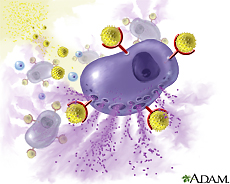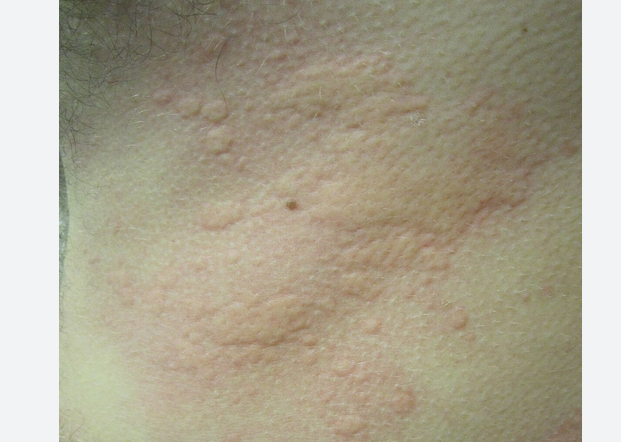An allergy is a reaction by your immune system to something that does not bother most other people. People who have allergies often are sensitive to more than one thing. Substances that often cause reactions are
- Pollen
- Dust mites
- Mold spores
- Pet dander
- Food
- Insect stings
- Medicines
Normally, your immune system fights germs. It is your body’s defense system. In most allergic reactions, however, it is responding to a false alarm. Genes and the environment probably both play a role.
What is Allergy ? The Symptoms, Causes of Allergy, How to treat Allergy ?
Allergies can cause a variety of symptoms such as a runny nose, sneezing, itching, rashes, swelling, or asthma. Allergies can range from minor to severe. Anaphylaxis is a severe reaction that can be life-threatening. Doctors use skin and blood tests to diagnose allergies. Treatments include medicines, allergy shots, and avoiding the substances that cause the reactions.
🌿 What Is an Allergy?
An allergy is a reaction of the immune system to a substance that is usually harmless to most people. These substances, called allergens, can include pollen, dust, food, insect stings, medications, and more.
When someone with an allergy encounters an allergen, their immune system overreacts and produces antibodies called IgE. These antibodies trigger the release of histamine and other chemicals, leading to inflammation and symptoms.
🤧 Common Symptoms of Allergies
The symptoms depend on the type of allergen and how it enters the body.
🟡 Respiratory Allergies (e.g. pollen, dust mites, mold, animal dander):
- Sneezing
- Runny or stuffy nose
- Itchy or watery eyes
- Coughing
- Postnasal drip
- Asthma symptoms (wheezing, shortness of breath)
🔵 Skin Allergies (e.g. latex, metals, cosmetics):
- Itching
- Redness or swelling
- Hives (raised, itchy bumps)
- Eczema (dry, cracked, itchy skin)
🍤 Food Allergies:
- Hives
- Swelling of lips, face, or throat
- Stomach cramps, nausea, vomiting, or diarrhea
- Difficulty breathing (in severe cases)
💉 Drug Allergies:
- Rash
- Itching
- Breathing difficulty
- Anaphylaxis (severe, life-threatening reaction)
🐝 Insect Sting Allergies:
- Local swelling and redness
- Hives
- Difficulty breathing
- Anaphylaxis
🧪 Common Causes of Allergies (Allergens)
- Airborne allergens: pollen, dust mites, mold spores, pet dander
- Foods: peanuts, shellfish, milk, eggs, wheat, soy, tree nuts
- Medications: antibiotics (e.g., penicillin), NSAIDs, anesthesia
- Insect stings: bees, wasps, fire ants
- Substances: latex, nickel, certain chemicals
💊 How to Treat Allergies
✅ Avoidance
- Stay away from known allergens (e.g., avoid certain foods, use dust-proof covers, avoid going out during high pollen times).
✅ Medications
- Antihistamines: relieve sneezing, runny nose, hives (e.g., cetirizine, loratadine)
- Decongestants: relieve nasal congestion (e.g., pseudoephedrine)
- Corticosteroids: nasal sprays or creams to reduce inflammation
- Leukotriene modifiers: help reduce allergic inflammation (e.g., montelukast)
- Eye drops or skin creams: for local allergic symptoms
✅ Immunotherapy (Allergy Shots or Tablets)
- Gradually desensitizes your body to allergens over time
- Used for long-term treatment of pollen, dust mites, mold, pet allergies, or insect stings
✅ Epinephrine (for severe reactions)
- Carried by people with a history of anaphylaxis
- EpiPens are used to stop life-threatening allergic reactions immediately
🛡️ Tips to Manage Allergies
- Keep windows closed during pollen seasons
- Use HEPA filters and clean regularly to reduce dust
- Read labels on food and products carefully
- Wear medical alert ID if you have serious allergies
- See an allergist for proper diagnosis and testing

